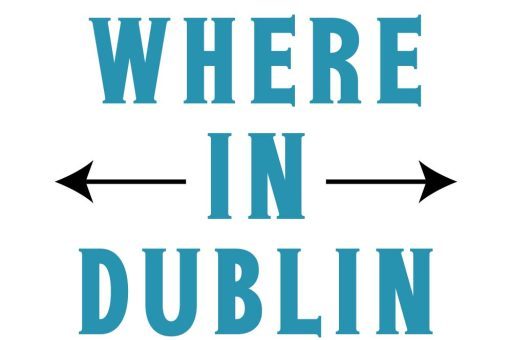If you’re planning a trip to Dublin, one of the first things that might cross your mind is whether you can safely drink tap water in Dublin hotels. It’s a fair question, nobody wants to deal with stomach issues while traveling. Let’s clear things up and go through everything you need to know about Dublin’s tap water, hotel safety standards, and what you can expect during your stay.
The Short Answer: Yes, You Can Drink Tap Water in Dublin Hotels
The tap water in Dublin is generally safe to drink. The city’s water supply goes through strict treatment and monitoring to meet both Irish and European Union safety standards. That means the tap water you find in most Dublin hotels is perfectly fine for drinking, brushing your teeth, and even making tea or coffee.
However, there are a few exceptions and details worth knowing, especially if you’re staying in an older building, a rural area outside Dublin, or if you have a sensitive stomach.
Why Dublin’s Tap Water Is Considered Safe
Strict Quality Regulations
Dublin’s water is managed by Uisce Éireann (Irish Water), which follows EU Drinking Water Directive standards. These standards set strict limits for chemicals, bacteria, and minerals. Regular testing happens across the city to ensure water quality stays consistent.
The local authorities test for:
Microbiological content (like E. coli or coliform bacteria)
Chemical balance (nitrates, chlorine levels, etc.)
Metals (such as lead or copper, especially in older buildings)
If anything goes beyond safe levels, the public is informed immediately through official channels.
Modern Treatment Facilities
Most of Dublin’s water comes from the River Liffey and River Vartry, treated at advanced filtration plants. These plants remove impurities, add disinfectants in controlled amounts, and ensure the water leaving the facility is crystal clear and safe for drinking.
What About Older Buildings and Hotels?
Some of Dublin’s charm lies in its older buildings and historic hotels. While they’re beautiful, their plumbing systems can sometimes be outdated. Lead pipes, for example, were common decades ago, and in rare cases, traces of lead may still show up in tap water from older properties.
How Hotels Handle This
Most Dublin hotels—especially 3-star and above—have upgraded their plumbing systems to eliminate this issue. They also perform internal water quality checks to make sure the water from guest room taps meets health standards.
If you’re staying in a smaller guesthouse, B&B, or older hotel, you can always ask the staff directly about their water system. They’ll tell you whether the water is safe to drink or if they recommend using bottled water.
Differences Between Hotel Taps and Bathroom Taps
Here’s a small but useful tip: in some older Dublin hotels, bathroom tap water may come from a storage tank in the attic, not directly from the main water line. That means it’s not always as fresh as the water from the kitchen tap.
If you’re ever unsure, use the cold water tap in the bathroom or ask reception where the direct mains supply is located. Some hotels even label taps with “drinking water” signs to avoid confusion.
Water Quality Reports and Transparency
You can actually check Dublin’s water quality reports online at the official Uisce Éireann website. These reports show test results for bacteria, fluoride, and mineral content, broken down by area.
This kind of transparency builds confidence in the public water system. Based on my overall experience traveling across Ireland, Dublin has one of the most reliable municipal water supplies in Europe.
Does the Water Taste Different?
Yes, the taste might be slightly different from what you’re used to, but that doesn’t mean it’s unsafe. The flavor often depends on:
The chlorine level (added in small amounts to disinfect the water)
The source of the water (rivers, reservoirs, or lakes)
The age of the plumbing in the building
Some visitors say Dublin’s tap water has a faint mineral or chlorine taste. If you’re sensitive to taste, you can fill a jug of tap water and leave it uncovered for an hour or two—the chlorine evaporates naturally, leaving the water fresher.
What About Boil Water Notices?
While Dublin’s water system is reliable, there have been rare cases where “boil water notices” were issued. These happen when there’s a contamination risk—usually due to heavy rainfall or maintenance issues at treatment plants.
How to Stay Updated
Check Uisce Éireann’s website for current notices.
Ask your hotel reception—they’re required to inform guests if a notice affects the area.
Follow instructions from local authorities if one is active.
Hotels typically supply bottled water or have filtered options ready if a boil notice is in effect.
Bottled Water in Hotels: Do You Need It?
Most mid-range and luxury Dublin hotels provide bottled water as a courtesy, but it’s not necessary for health reasons—it’s more about comfort and hospitality.
If you want to save money and reduce plastic waste, filling your reusable bottle from the tap is completely fine. Dublin even has public water refill stations scattered around the city center.
Common Myths About Tap Water in Dublin
1. “Tap water in Ireland is hard to drink.”
False. Dublin’s tap water is medium-hard, meaning it has moderate mineral content (like calcium and magnesium), which is safe and even healthy for most people.
2. “Hotel tap water isn’t clean enough for brushing teeth.”
Also false. The water used in hotel bathrooms comes from the same supply as kitchen taps unless stated otherwise.
3. “Locals don’t drink tap water.”
Wrong again. Most Dublin residents drink tap water daily without issues. It’s part of normal life there.
Tips for Tourists
1. Always Ask if You’re Unsure
If your hotel is in an older or rural area, just ask reception. Dubliners are friendly, and hotel staff will give you an honest answer right away.
2. Bring a Reusable Water Bottle
You’ll find refill points across Dublin Airport, train stations, and public parks. This helps you stay hydrated and saves money.
3. Watch for Water Signs
Some bathrooms have small “non-drinking water” labels—this doesn’t mean all water is unsafe, just that particular tap might be from a storage tank.
4. Use Cold Water for Drinking
Cold water comes directly from the main supply. Hot water might pass through a heater tank, which isn’t ideal for drinking.
Comparing Dublin’s Tap Water to Other European Cities
If you’ve traveled through Europe before, you’ll notice Dublin’s tap water holds up well.
Paris: Also safe, but has a more mineral-heavy taste.
London: Safe, though harder water may affect taste.
Rome: Safe from public fountains, but varies by neighborhood.
Dublin: Clean, consistently tested, and reliable in most hotels.
So, Dublin ranks among the top in water safety and quality, making it a good choice for travelers who prefer to skip bottled water.
From My Own Personal Experience
From my own personal experience staying across different hotels in Dublin—from budget stays near O’Connell Street to upscale hotels in Ballsbridge—the tap water was always clear, fresh, and safe to drink. I never once needed to buy bottled water except out of convenience.
Most hotels even have small notices confirming their tap water is safe, which adds reassurance. I also found that the taste gets better once you let the water run for a few seconds before filling your glass.
What If You Have a Sensitive Stomach?
While the water is safe, everyone’s digestive system reacts differently when traveling. If you have a sensitive stomach or specific health concerns, you might want to start by drinking small amounts of tap water and see how your body reacts.
Alternatively, you can always use bottled or filtered water for the first day or two. Dublin has major grocery stores and convenience shops that sell affordable bottled options.
Environmental Perspective
Drinking tap water in Dublin hotels is not just safe—it’s also more eco-friendly. Ireland has been working hard to reduce plastic waste, and choosing tap water helps the cause. Many hotels have joined sustainability programs encouraging guests to refill bottles instead of buying single-use plastic ones.
What to Do If You Notice a Problem
Though it’s rare, if you ever find discolored water, a metallic taste, or a musty smell, don’t panic. Here’s what to do:
Run the tap for a minute. Sometimes standing water in pipes can cause mild discoloration.
Notify hotel staff. They’ll check or provide bottled water immediately.
Avoid using hot water for drinking. Stick to cold taps only.
Hotels are required by law to address water quality issues right away, so you’ll be taken care of quickly.
Hotel Standards in Dublin
Luxury and business-class hotels in Dublin take water quality seriously. They often use additional filtration systems, water softeners, and periodic lab tests to ensure everything meets top health standards.
Even smaller guesthouses have strict inspection rules under Ireland’s hospitality regulations, which cover everything from hygiene to water testing.
So whether you’re staying in a modern city hotel or a charming vintage one, you can feel confident about your water safety.
Final Thoughts
So, can you drink tap water in Dublin hotels? Absolutely. It’s clean, regulated, and safe in almost all cases. Dublin’s water system is one of the best-maintained in Europe, and most hotels go the extra mile to make sure guests have access to safe drinking water.
If you ever feel unsure, ask the hotel staff—they’ll guide you immediately. But in general, you can fill your glass right from the tap and enjoy a refreshing drink without worry.
Traveling is much easier when you don’t have to hunt for bottled water all the time. And in Dublin, you won’t have to. The tap water here is safe, sustainable, and trusted by both locals and visitors alike.



